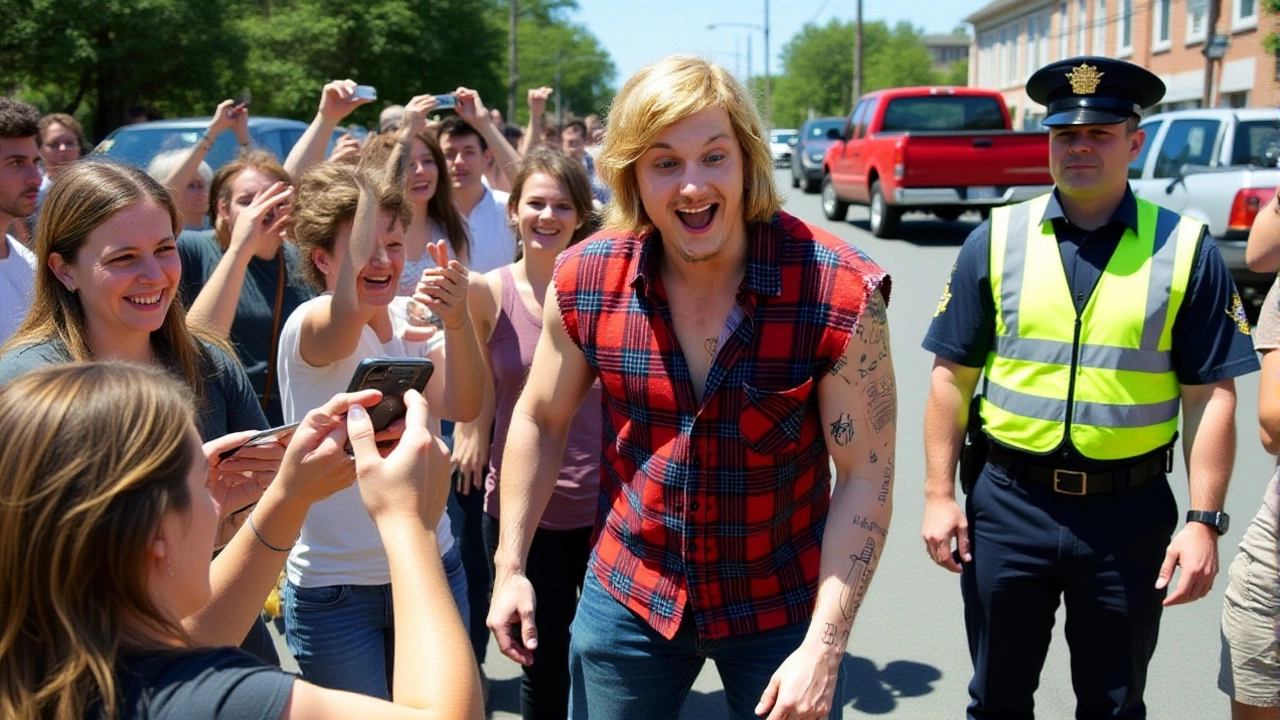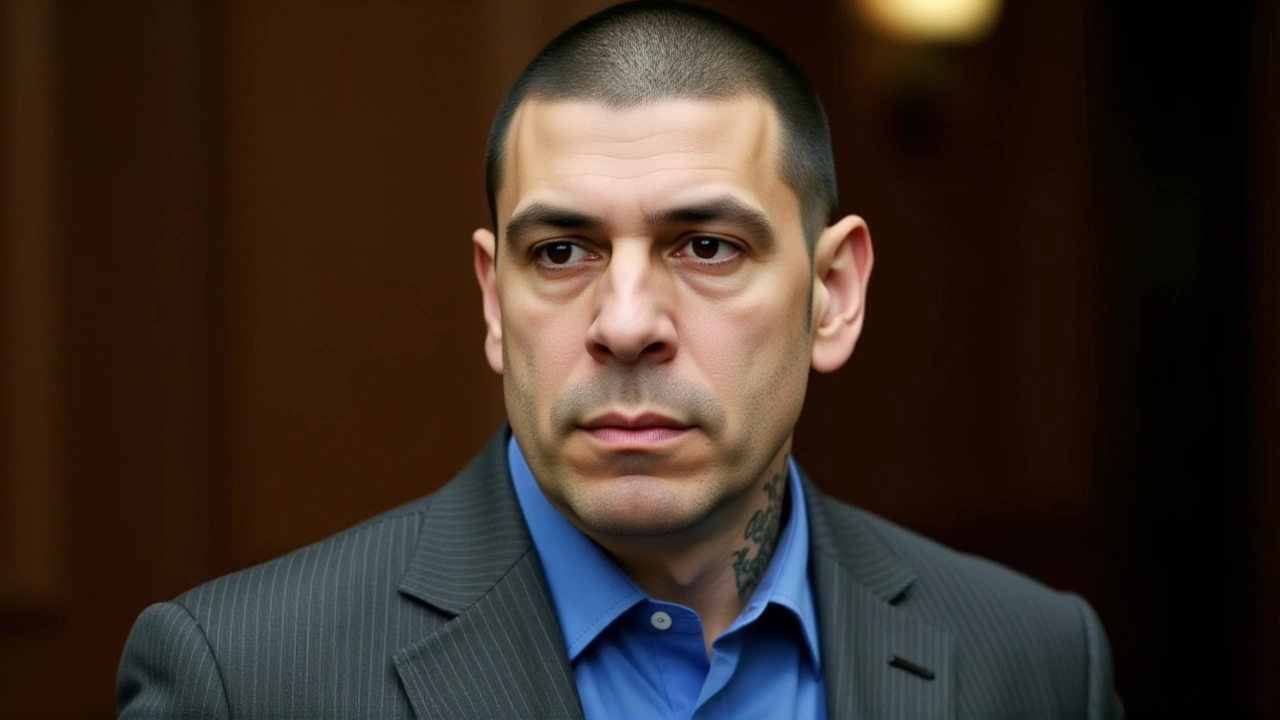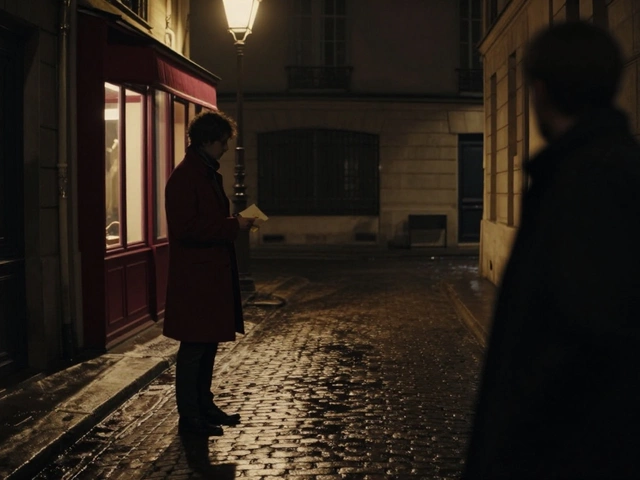When defense attorney George Leontire told viewers of the docu-series Aaron Hernandez Uncovered that the late Aaron Hernandez "clearly was gay," he didn’t just reveal a private detail—he ignited a firestorm over identity, justice, and grief. The statement, aired March 17, 2018, came from a man who had spent years defending Hernandez in court and who, as an openly gay attorney married for over 36 years, understood the weight of such a confession in a culture that punished it. "This man acknowledged it," Leontire said. "He acknowledged the immense pain that it caused him."
Leontire’s words weren’t idle speculation. They were rooted in conversations he claimed to have had with Hernandez during the defense of the 2012 double homicide case in Boston, where Hernandez was ultimately acquitted. Leontire, who practices at Leontire & Leontire LLC in Massachusetts, went further: he accused prosecutors of using Hernandez’s alleged homosexuality as a tool to justify a case built on shaky evidence. "As a gay lawyer for 37 years," he said, "I found it outrageous that the government would be trying to use someone’s sexuality to prop up a case that they had no business bringing in the first place."
The Weight of a Suicide Note
Just months before Leontire’s comments, Hernandez was found dead in his cell at the Souza-Baranowski Correctional Center in Shirley, Massachusetts, on April 19, 2017—five days after his acquittal in the 2012 killings of Daniel de Abreu and Safiro Furtado. He was 27. His death sent shockwaves through the sports world and beyond, but rumors quickly swirled about his final hours. Speculation mounted that he’d left behind letters—particularly one addressed to a man named Kyle Kennedy, a 22-year-old reportedly linked to Hernandez in prison.
That’s when Jose Baez, Hernandez’s lead defense attorney and a high-profile figure in legal circles, issued a firm denial. "Rumors of letters to a gay lover, in or out of prison, are false," Baez stated on April 21, 2017. "These are malicious leaks used to tarnish someone who is dead." He confirmed two of Hernandez’s three suicide notes were addressed to his fiancée, Shayanna Jenkins-Hernandez, and their 4-year-old daughter, Avielle Janelle Hernandez. The third note’s recipient remains undisclosed by the Worcester County District Attorney’s Office.
A Fiancée’s Heartbreak
When the Netflix docuseries Killer Inside: The Mind of Aaron Hernandez aired in January 2020, it introduced another layer: Dennis Sansoucie, Hernandez’s high school teammate from Bristol Central High School in Connecticut, claimed they had a sexual relationship during their teens. Sansoucie’s account, while uncorroborated, aligned with Leontire’s claims.
But for Jenkins-Hernandez, the revelations were painful. In an emotional ABC News interview with Amy Robach, she wept as she spoke: "You can’t describe someone’s sexuality without them being here. Although I have a child with Aaron, I still can’t tell you how he was feeling inside. No one can." She added, "He was certainly a man to me. There was no behavior that made me think differently." Still, she didn’t dismiss the possibility of hidden pain. "You start to feel for people that may be hiding inside how they really feel. And I—I feel awful for that."
Jenkins-Hernandez, who gave birth to Avielle on November 6, 2012, said she’d met Sansoucie "once or twice" and that he played no role in Hernandez’s adult life. Her testimony stood in stark contrast to the legal and media narratives unfolding around her.

Why This Matters
This isn’t just about a football player’s private life. It’s about how society, the legal system, and the media treat sexuality—especially when it’s inconvenient. Leontire’s assertion that prosecutors exploited Hernandez’s identity to build a case speaks to a broader pattern: the weaponization of LGBTQ+ identity in courtrooms, often to paint defendants as deviant or dangerous.
And yet, even as Leontire and Sansoucie offered their versions of Hernandez’s truth, Jenkins-Hernandez held onto her own. Her grief wasn’t about labels. It was about losing a partner, a father, a man she loved—even if he carried secrets she never saw.
There’s no official investigation into Hernandez’s sexuality. No autopsy revealed his inner world. What we have are fragments: a lawyer’s testimony, a teammate’s memory, a fiancée’s tears, and a prosecutor’s strategy that may have crossed a line.

What’s Next?
With Hernandez dead and his legal cases closed, no new charges or inquiries are expected. But the questions linger. Did the system fail him by reducing his identity to a legal tactic? Did the media sensationalize his death by fixating on rumors of secret relationships? And what does it mean for young athletes growing up in hyper-masculine environments—like the New England Patriots—who fear being themselves?
Leontire, now 65, has become an unlikely advocate. He’s spoken at LGBTQ+ legal forums since the docu-series aired, using Hernandez’s story to push for ethical boundaries in prosecution. "You don’t get to define someone’s truth after they’re gone," he told The Boston Globe in 2019. "Especially not when you’re the one who helped bury them."
Frequently Asked Questions
Did Aaron Hernandez ever publicly confirm he was gay?
No. Hernandez never made a public statement about his sexuality. His only known acknowledgments were private conversations with his defense attorney, George Leontire, and alleged disclosures to high school teammate Dennis Sansoucie. His fiancée, Shayanna Jenkins-Hernandez, stated she had no indication of it during their relationship.
Were there suicide notes addressed to a gay lover?
Lawyer Jose Baez firmly denied rumors of letters to Kyle Kennedy, calling them "malicious leaks." While Kennedy’s attorney confirmed his client would speak publicly, no such letter has been verified or released. The official records show two notes went to Jenkins-Hernandez and their daughter; the third recipient remains undisclosed.
How did prosecutors use Hernandez’s sexuality in court?
Leontire claimed prosecutors subtly implied Hernandez’s alleged homosexuality was a motive for the 2012 double murder, suggesting he killed the victims because they were gay or made advances. No direct evidence of this was presented, but defense attorneys argue it shaped jury perception—a tactic Leontire called unethical and dangerous.
Why is this story still relevant today?
It highlights how LGBTQ+ individuals, especially in sports, are often reduced to rumors or stereotypes after death. Hernandez’s case mirrors broader patterns of silencing queer voices and using identity as a weapon in legal proceedings—issues that remain urgent as athletes like Carl Nassib come out publicly today.
What role did the media play in shaping this narrative?
Media outlets amplified unverified claims about suicide notes and prison relationships without verifying sources, often prioritizing sensationalism over truth. This pressured Hernandez’s family and distorted public understanding, turning his death into a tabloid spectacle rather than a human tragedy.
Has anyone been held accountable for exploiting Hernandez’s sexuality?
No formal accountability has occurred. While Leontire criticized the prosecution’s approach, no disciplinary action was taken. The legal system never formally addressed whether sexuality was improperly used as a motive. The case remains a cautionary tale about ethics in criminal justice.






